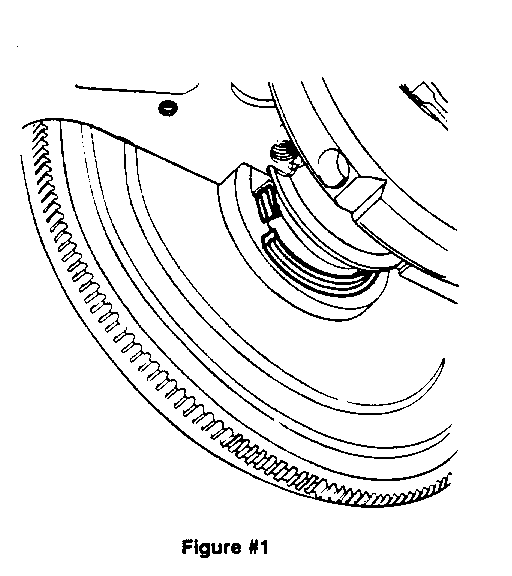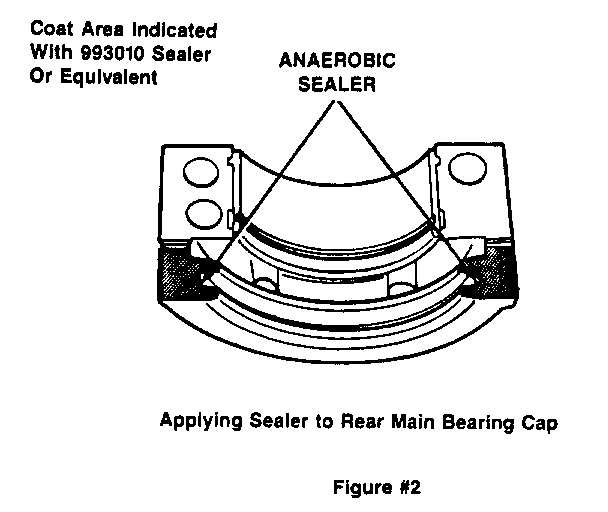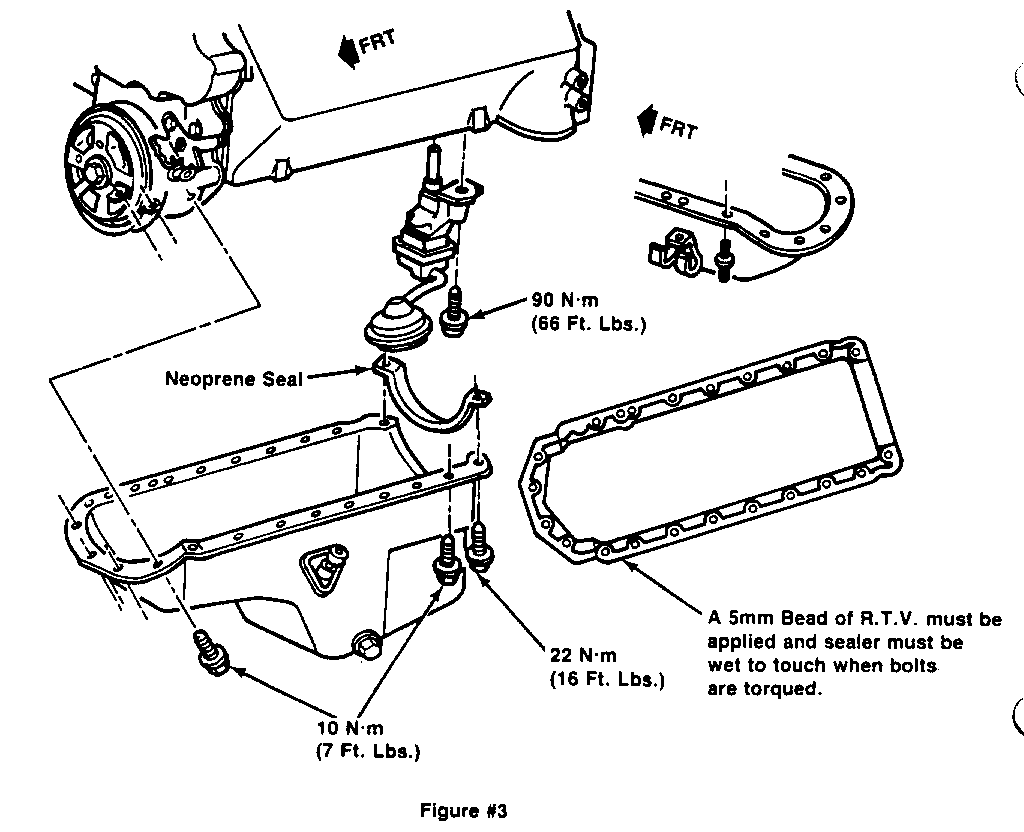REAR MAIN OIL SEAL LEAK-6.2 DIESEL USE NEW VITON SEAL

VEHICLES AFFECTED: 1982-1986 C,K,G,P - 1,2,3 With 6.2L Diesel Engine
Some 6.2L diesel engines may experience leakage from the 'rope type' rear main oil seal used in production. In order to correct this condition, a two-piece Viton Lip seal (P/N 23500417, two required) is available and should be used to replace the current rope seal when servicing for this condition. The new seal is an effective service replacement for rear main oil seal leak conditions and can be installed without removing the crankshaft.
Prior to installation of the new seal, the engine's crankcase ventilation system must be thoroughly inspected. All tubes, rubber hoses, and the CDR valve must be checked. Specifications for the crankcase ventilation system are one inch of water PRESSURE at idle to approximately two to five inches of water VACUUM at 2,000 RPM (or full load), checked at the engine dipstick tube. The checking procedure is outlined in the Light Duty Truck Service Manual.
SEAL INSTALLATION PROCEDURE
After confirming that the ventilation system is functioning correctly, use the following procedure to replace the seal.
1. Drain engine oil.
2. Remove the oil pan.
3. Remove the oil pump.
4. Remove the rear main bearing cap.
5. Remove the upper and lower rope seal.
6. Clean the upper and lower seal grooves, bearing cap slot, cylinder block and oil pan rails with a chlorinated solvent such as spray carburetor cleaner. Do not use cleaners such as mineral spirits that leave a film that RTV will not stick to. All surfaces must be clean and dry before applying sealant.
7. Place a piece of plastigage material on the rear main journal.
8. Install the rear main bearing cap and bearing, and torque to 95 N.m (70 ft. lbs.).
9. Remove the bearing cap and check the bearing clearance. If bearing clearance is outside the specification (.0022 in. - .0037 in.), correct as necessary.
10. Apply a thin coat of engine oil on both seal lips where they contact the crankshaft.
11. Roll one piece of the seal into the cylinder block upper seal groove until 1/2 inch of the seal's one end is extending out of the block. (Figure No. 1.).
NOTE: Make certain that both seals are installed correctly by having the side which has 'outside' printed on it facing towards the transmission.
12. Insert the second half of the seal into the opposite side of the cylinder block groove. Only 1/2 inch will be inserted into the block, the remainder should be snug against the crankshaft.
NOTE: Contact ends of seal should now be located at the (4) and (10) or (8) and (2) o'clock positions. The seal is now installed around the crankshaft. (Figure No. 1). This aligns the rear main bearing cap and seal lips.
13. Apply a thin film of anaerobic sealer, P/N 993010, to the cap to assist in sealing the block mating surface. (Figure No. 2).
CAUTION:
Do not put sealant in the bearing cap oil relief slot.
14. Follow directions for usage of GM P/N 992664 sealer (equivalents are Loctite 414 or Fel Pro 361) and apply two drops into the centre lower bearing cap seal groove.
15. Install the rear main bearing cap.
NOTE: To prevent damage to the rear main bearing cap, it is to be tapped into the block using a brass or leather hammer. The new seal is used as a guide. The cap must NOT be pulled into the block with the bolts. Lubricate bolt threads with engine oil and install. Torque bolts to specifications.
Inner 150 N.m (110 ft. lbs.) Outer 135 N.m (100 ft. lbs.)
16. Install oil pump assembly and torque bolts to 90 N.m (65 ft. lbs.).
17. Apply a 5mm (3/16 in.) bead of RTV sealer, GM P/N 10950893 (GE 1673 or equivalent) on the top and bottom of the oil pan's new rear neoprene seal and also to each end of seal where it contacts the cylinder block. Sealant must also be applied along the pan rail's entire INNER edge and around all bolt holes.
18. Install the oil pan while RTV is still wet to the touch and torque all bolts to 10 N.m (7 ft. lbs.) except two rear bolts, which are 22 N.m (16 ft. lbs.).
19. Let RTV set 30 minutes, which is sufficient skim-over time for the RTV, before retesting engine for leaks.
WARRANTY INFORMATION
When the rear main seal is replaced on 6.2L diesel engines under warranty, the new two-piece Viton seal (P/N 23500417) must be used. The Labour Time Guide will be adjusted to reflect this change as follows:
Labour Operation
J1100 Seal, Rear Main Bearing R & R or Repack is no longer valid and must not be used.
J1120 Seal Crankshaft Rear Main Replace, will pay 'C,K' 2.8 hrs., 'G' 4.0 hrs.
Add: With strut rods 'K' .2 hr.
Warranty processing system will be changed for all model years to reflect these new times.



General Motors bulletins are intended for use by professional technicians, not a "do-it-yourselfer". They are written to inform those technicians of conditions that may occur on some vehicles, or to provide information that could assist in the proper service of a vehicle. Properly trained technicians have the equipment, tools, safety instructions and know-how to do a job properly and safely. If a condition is described, do not assume that the bulletin applies to your vehicle, or that your vehicle will have that condition. See a General Motors dealer servicing your brand of General Motors vehicle for information on whether your vehicle may benefit from the information.
